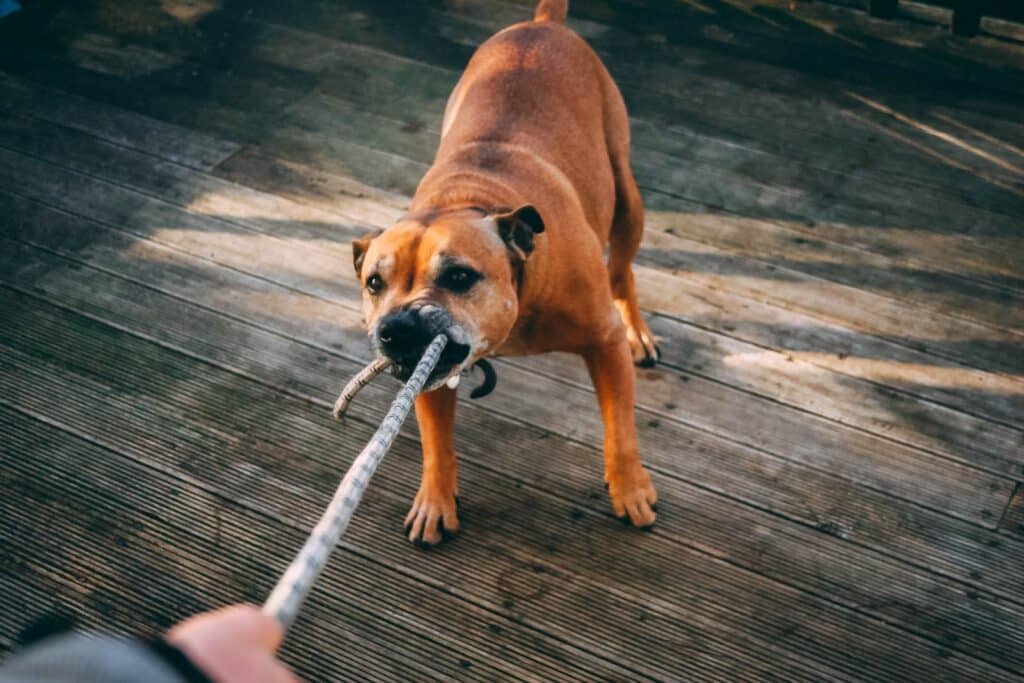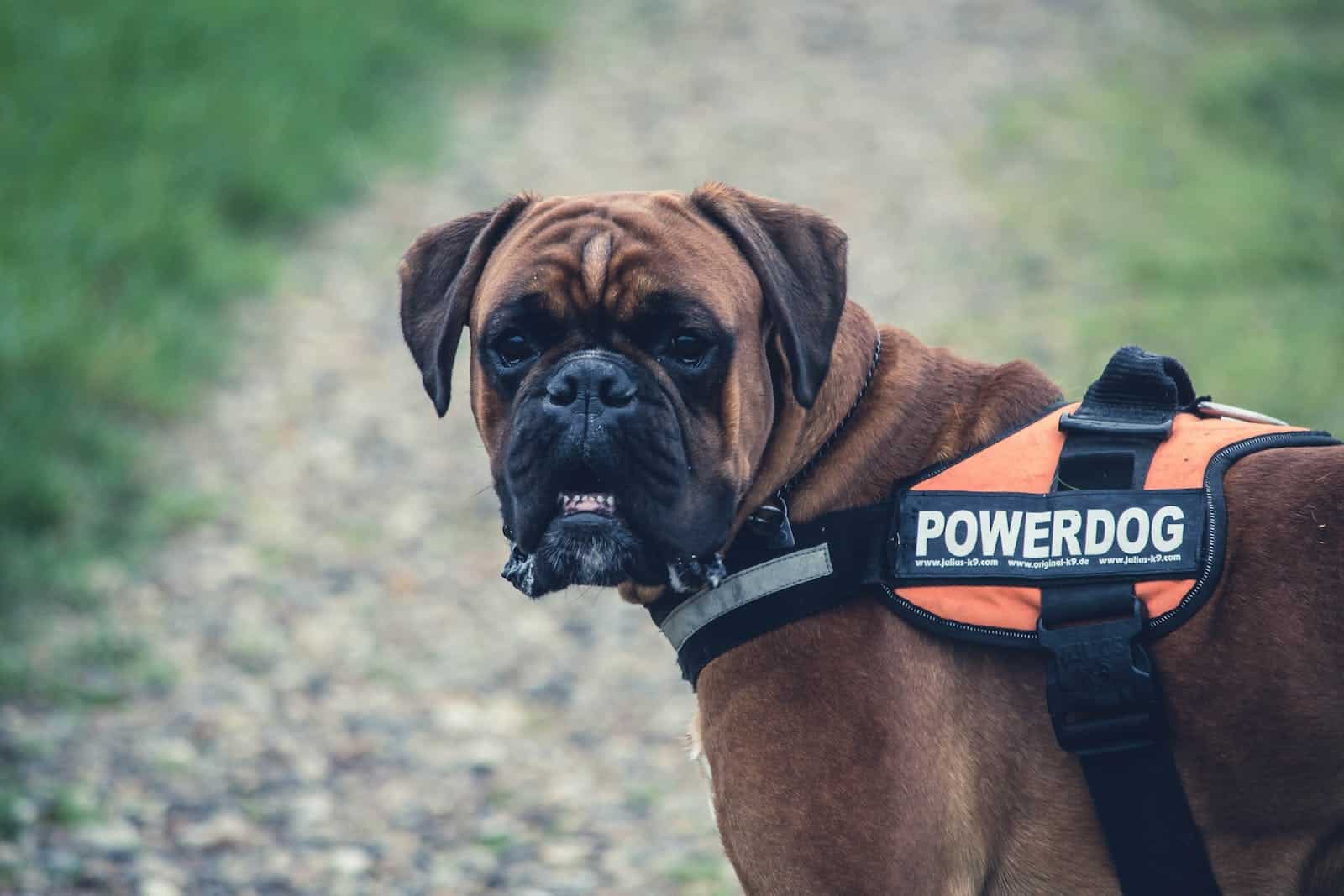Boxers are a popular medium-sized breed known for their playfulness, loyalty, and unmistakable squashed muzzle. As an owner, one of the first questions you may ask is “how long do boxers live?” Understanding the average boxer lifespan can help you make the most of your time with your four-legged friend.
Table of Contents
Average Lifespan of a Boxer Puppy

On average, boxer puppies will live between 10-12 years. However, several key factors impact an individual dog’s longevity:
- Genetics: Lines bred from healthy, long-lived parents tend to live longer lives themselves. Reputable breeders screen for genetic issues that may cut a dog’s life short.
- Nutrition: Providing high-quality commercial dog food designed for a boxer’s life stage supports development and lifelong health. Avoid over or underfeeding.
- Veterinary Care: Up-to-date vaccines, prompt treatment for illnesses, regular vet checks, and preventative care helps prevent early death from preventable disease. Spay/neuter by 6 months old.
- Environment: A safe, enriched home without hazards sets up good daily habits. Dangerous objects, household poisons, extreme weather, and more pose preventable threats.
- Exercise & Mental Stimulation: An active lifestyle maintains muscle tone and healthy joint function. Boredom can lead to destructive behaviors and emotional issues affecting lifespan.
If provided excellent care from the start, some boxers live past 12, but 10-12 years is the most common age range. Large breed dogs are generally shorter-lived than small dogs. Still, with attentive ownership, boxers can thrive throughout puppyhood into their senior years.
Average Lifespan of a Boxer Male vs. Female
You may wonder if male and female boxers have different expected lifespans. On average, females live around 1 year longer than males.
Typical longevity for each gender is:
- Male Boxers: 9 – 11 years
- Female Boxers: 10 – 12 years
The longer average female lifespan holds true for most dog breeds. Reproductive cancers later in life may impact males more significantly than females. Neutering/spaying also seems to add 1-2 years by preventing hormone-driven illnesses.
Regardless of gender, individual variation between dogs exists based on genetics, lifestyle factors, and chance. Providing premium preventative healthcare, regular vet checks, and an enriched home life gives every boxer a better shot at reaching their maximum lifespan potential despite gender.
Signs a Boxer Dog is Dying

Towards the end of a boxer’s life at 8, 10, 11 or 12 years old, you may notice signs of aging signaling diminished health or approaching end of life. Being aware of common age-related changes helps you cherish the moments left with an elderly boxer.
Signs your boxer may be approaching the final stage of life include:
- Labored breathing, panting without cause
- Loss of bowel or bladder control
- Difficulty walking, standing, or climbing
- Loss of appetite, weight loss
- Cloudy eyes, vision trouble
- Increased sleeping, lethargy, mood changes
- Seeking isolation, confusion
- Growths, lumps or masses on skin
A geriatric boxer requires extra gentle care such as soft bedding, home-cooked meals if tolerable, and adjusting exercise for their mobility limits. Short leashed walks or time together in the yard replaces rigorous play. Saying goodbye is hardest, but take pride in the happy healthy years you shared together.
Common Cause of Death for Boxers

Despite an active, loving boxer’s best efforts to stick around, health problems can cut their lifetime short. Knowing the most common age-related issues helps you catch early warning signs to extend your boxer’s time with you.
- Cancer: Sadly, cancer proves the end for approximately 1 in 3 boxers. Mast cell tumors, brain tumors, lymphomas, and hemangiosarcoma strike most commonly. Early detection and specialized care can prolong life.
- Cardiac Issues: About 1 in 10 elderly boxers succumb to end stage heart disease or heart failure leading to fluid in lungs or inefficient blood flow. Medication helps manage related congestive heart failure resulting from valve deterioration and cardiomyopathy.
- Neurological Diseases: Several nervous system issues like deafness, seizures, dementia and spinal conditions can decrease life quality and longevity around 8-12 years old. Medication, surgery or rehabilitation may slow the effects.
While boxers are at risk for other inherited conditions, cancer, heart, and brain diseases make up about 60% of early deaths before reaching the average lifespan. Advances in veterinary medicine now help many boxers stay active to 12 years old or more with careful monitoring and treatment.
Frequently Asked Questions About Boxer Lifespan
How long should I expect my boxer to live?
The average lifespan of a boxer dog is between 10-12 years with proper care, and some may exceed this. Large breeds generally live shorter lives than tiny toy breeds. Feed a complete commercial dog food for boxers’ life stage, keep up with vaccines, see the vet at the first sign of illness, spay/neuter, and lots of walks, play and affection from you!
What health issues may cut my boxer’s life short?
Cancer, cardiac disease, neurological conditions pose the greatest threats. Mast cell cancer, brain cancer, arterial and valvular heart defects, cardiomyopathy, deafness, dementia and spinal diseases tend to affect boxers prematurely starting around 6 -10 years old.
How will I know when my aging boxer is nearing end of life?
In elderly boxers over 9 or 10 years old, look for labored breathing, loss of continence, mobility difficulty, isolation, appetite and weight loss, confusion, vision trouble, and growths on the skin. Adjust their environment, meals and activity for comfort through final days filled with pats and praise.
Will a male or female boxer live longer?
Female boxers generally outlive males by about 1 year with average lifespans around 10-12 years vs. 9-11 years for males. Early spay/neuter adds another 1-2 potential years by reducing hormone-driven cancers and illness risks. All individuals vary, but attentive care helps every boxer reach their lifespan potential regardless of gender.
Rounding Up the Average Boxer Lifespan
From silly puppy to dignified senior, boxers make devoted companions during their 10-12 years of life. Knowing what to expect from your boxer’s age in dog years allows you to celebrate each phase. Stay alert for breed-specific health vulnerabilities as they grow older, and catch issues promptly for the best longevity odds.
With attentive ownership, even an elderly boxer thrives through pain-free golden years by your side. While saying final goodbyes is difficult, take comfort in providing a lifetime of tail-wagging adventures, cozy naps, healthy homemade meals, and endless cuddling on the couch. That’s a measure of true love and success as a boxer parent.



